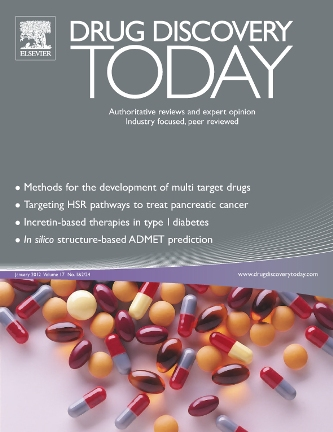抗肥胖药物发现中的人工智能:解锁下一代治疗方法。
IF 6.5
2区 医学
Q1 PHARMACOLOGY & PHARMACY
引用次数: 0
摘要
肥胖是一种与严重健康风险相关的多因素疾病,除了改变生活方式和现有药物外,还需要创新的治疗方法。现有的抗肥胖药物在疗效、副作用、体重反弹和高成本方面存在局限性。人工智能(AI)正在成为药物发现的关键工具,加速了新的候选药物的识别和优化治疗策略。本文综述了人工智能在开发下一代抗肥胖药物方面的潜力,重点是胰高血糖素样肽-1受体激动剂(GLP-1 RAs)及其在发现抗肥胖肽中的作用。此外,它还探讨了整合挑战,并提供了利用人工智能重塑抗肥胖药物发现格局的未来前景。本文章由计算机程序翻译,如有差异,请以英文原文为准。
Artificial intelligence in anti-obesity drug discovery: unlocking next-generation therapeutics
Obesity, a multifactorial disease linked to severe health risks, requires innovative treatments beyond lifestyle changes and current medications. Existing anti-obesity drugs face limitations regarding efficacy, side effects, weight regain and high costs. Artificial intelligence (AI) is emerging as a pivotal tool in drug discovery, expediting the identification of novel drug candidates and optimizing treatment strategies. This review examines AI’s potential in developing next-generation anti-obesity therapeutics, with a focus on glucagon-like peptide-1 receptor agonists (GLP-1 RAs) and their role in discovering anti-obesity peptides. Additionally, it explores integration challenges and offers future perspectives on leveraging AI to reshape the landscape of anti-obesity drug discovery.
求助全文
通过发布文献求助,成功后即可免费获取论文全文。
去求助
来源期刊

Drug Discovery Today
医学-药学
CiteScore
14.80
自引率
2.70%
发文量
293
审稿时长
6 months
期刊介绍:
Drug Discovery Today delivers informed and highly current reviews for the discovery community. The magazine addresses not only the rapid scientific developments in drug discovery associated technologies but also the management, commercial and regulatory issues that increasingly play a part in how R&D is planned, structured and executed.
Features include comment by international experts, news and analysis of important developments, reviews of key scientific and strategic issues, overviews of recent progress in specific therapeutic areas and conference reports.
 求助内容:
求助内容: 应助结果提醒方式:
应助结果提醒方式:


